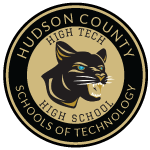In the introductory course of the PLTW Biomedical Science program, students explore concepts of biology and medicine to determine factors that led to the death of a fictional person. While investigating the case, students examine autopsy reports, investigate medical history, and explore medical treatments that might have prolonged the person’s life. The activities and projects introduce students to human physiology, basic biology, medicine, and research processes while allowing them to design their own experiments to solve problems.
Exposes students to the variety of opportunities available within the healthcare industry (e.g., nursing, therapy, dental care, administrative services, and lab technology). These courses provide experiences in several of these occupational clusters, along with information and knowledge related to the healthcare industry as a whole.
Students examine the interactions of human body systems as they explore identity, power, movement, protection, and homeostasis. Exploring science in action, students build organs and tissues on a skeletal Maniken®; use data acquisition software to monitor body functions such as muscle movement, reflex and voluntary action, and respiration; and take on the roles of biomedical professionals to solve real-world medical cases.
Emergency Medical Technology courses place a special emphasis on the knowledge and skills needed in medical emergencies. Topics typically include clearing airway obstructions, controlling bleeding, bandaging, methods for lifting and transporting injured persons, simple spinal immobilization, infection control, stabilizing fractures, and responding to cardiac arrest. The courses may also cover the legal and ethical responsibilities involved in dealing with medical emergencies. These courses may prepare students to obtain certification in Emergency Medical Response (EMR), CPR, or First Aid.
Students follow the life of a fictitious family as they investigate how to prevent, diagnose, and treat disease. Students explore how to detect and fight infection; screen and evaluate the code in human DNA; evaluate cancer treatment options; and prevail when the organs of the body begin to fail. Through real-world cases, students are exposed to a range of interventions related to immunology, surgery, genetics, pharmacology, medical devices, and diagnostics.
Biomedical Innovation courses help students apply their knowledge and skills to answer questions or solve problems related to the biomedical sciences. These courses help students design innovative solutions for emerging health challenges and address topics such as clinical medicine, human physiology, medical innovation, water contamination, public health, molecular biology, and forensic autopsy, and public health. These courses may also provide students with the opportunity to work with a mentor or adviser from a university or hospital, physician’s office, or industry. Students may design and complete an independent project as part of the course.
In Medical Terminology courses, students learn how to identify medical terms by analyzing their components. These courses emphasize defining medical prefixes, root words, suffixes, and abbreviations. The primary focus is on developing both oral and written skills in the language used to communicate within health care professions.
We are constantly creating hypotheses, making predictions, testing, and analyzing. Our lives are full of probabilities. Statistics is related to probability because much of the data we use when determining probable outcomes comes from our understanding of statistics. We will cover a range of topics, some which include: independent events, dependent probability, combinatorics, hypothesis testing, descriptive statistics, random variables, probability distributions, regression, and inferential statistics.
